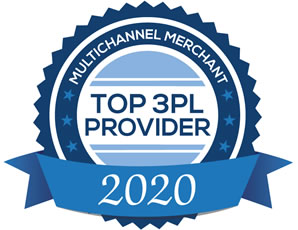
Pricing is not one-size-fits-all when it comes to fulfillment.
People ask us why we don't post our pricing. The simple answer is that fair pricing is not easy to display in a single chart.
Let's imagine that a grocery store was asked how much it costs a month to shop there. How would they answer? Naturally it depends on what you buy. Groceries for a single person will not cost the same amount as a family of four. Plus, some people buy organic and some shop the sales. It's very personal. If everyone paid the same amount, inequities would quickly develop.
The same principle is true in fulfillment. Each business is different in a myriad of ways.
Receiving and storage
The frequency of receiving affects labor needs. It could mean daily small shipments or multiple pallets, and there might be one container from overseas for a year's supply vs. several truckloads during the year. This obviously affects how the warehouse must prepare.
The condition of the incoming shipments are also important as some arrive without SKU markings and packing slips, while others are easy to scan into the system.
Storage could be very long term or the complete opposite. There are some products that take up space in a warehouse for years without moving. This is costly for operations, particularly when it happens with multiple clients. This is one reason that Amazon has started levying long term storage fees.
Order size and volume
Some businesses ship 20 items in a typical order, while others usually have just one or two items. Charging by order can be difficult in this sense.
If a business ships over 500 orders a month, while another business ships 10-20 orders a month, their pricing must be different to be fair. There is a certain amount of administrative overhead associated with maintaining a client account. This is reflected in a sliding scale of charges. Volume always brings pricing down.
This comes into play with B2C vs. B2B clients. Distributors who ship pallets and large quantities need to be charged differently than retailers shipping smaller and more numerous orders. After all, the retailer wouldn't want to pay a share of the distributor's overhead and the distributor wouldn't want to pay higher pick-and-pack charges appropriate to the smaller vendor.
Special handling
Not every merchant can settle for strictly automated shipping. Whether it's customized labels, kits, packaging requirements, or marketing inserts, extras need to be discussed before offering accurate pricing.
Customer service
The human touch has been lost at a lot of 3PLs in exchange for a more automated process with online ticketing systems. That keeps costs lower and it works great for some businesses, but others need the ability to make last-minute changes or special requests. It is important to consider whether your business expects personal contact from the fulfillment house. Some offer several service options to make it easier to provide the right service to each client.
Global reach
International shipments require special paperwork, which takes more time and handling to prepare. This is typically handled as a small add-on charge.
There are many little differences between eCommerce client profiles that make it difficult and unfair to give a simple answer to the pricing question. A good fulfillment house will talk to you about the differences and find the right solution for you. We tell prospective clients that we might not be the right fit, but we’d like to have a chance to help you make that decision.
What to Ask a New 3PL
Here are some questions we recommend asking a new fulfillment house to help you make an informed decision.
-Is there a minimum order volume per month? What if we drop below the threshold? How will the pricing change as we grow in volume?
-Do the per order pick and pack charges change based on the number of items in an order?
-What are the receiving charges? Are there requirements for labeling etc.?
-What is the cost for storage? Are there time limits or caps on volume?
-Do you charge differently for international orders, insert, or other special handling?
-Is there a contract term?
-Do you charge for new client integration? Are there particular eCommerce systems that would require custom integration?
-Do you have climate controlled storage or other special areas if we have perishables?
-Can you do customization, such as kits or printed labels
-Do you have experience with FBA prep?
-Can we see our inventory and orders etc in real time? Can we see an example of the account portal you use with your clients?
-What customer service is offered? Phone/email etc?
-Can we contact a few of your clients as references?
Of course, not all of these will apply to your business and there are probably other questions that you'll want to add. Always ask for references, and take your time with the decision.
We are happy to answer any questions you might have regarding our service. Here are some reasons to choose us, if we're a good fit. If we can help, don't hesitate to contact us.
Business Tips and Industry News
For more news and tips on all things business and e-commerce, visit our e-zine. Our e-zine is also available as an rss feed.



